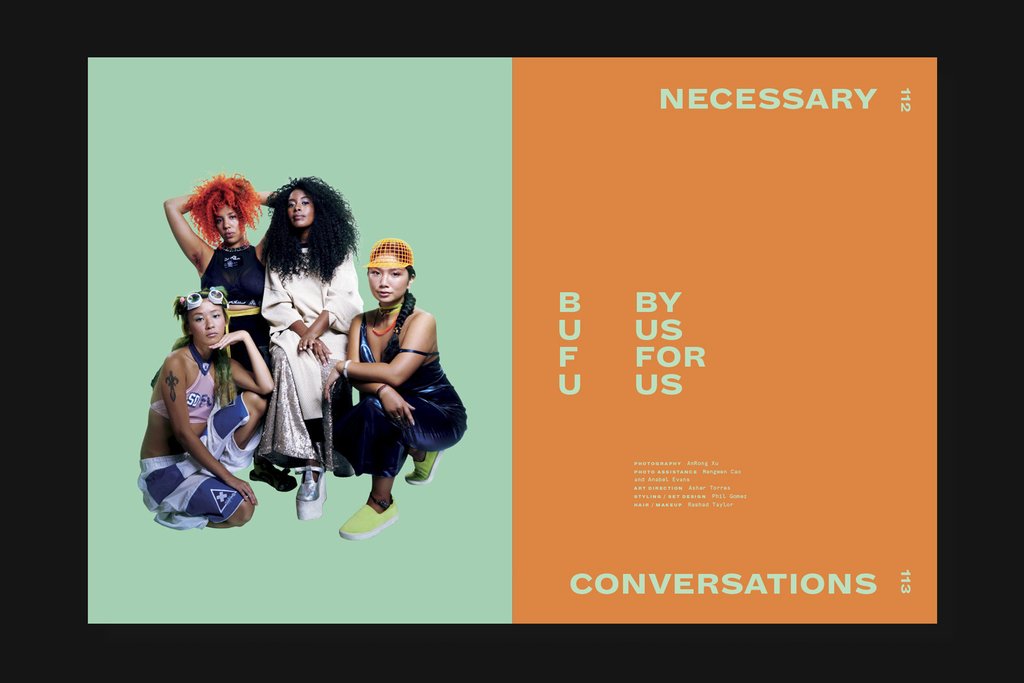Lauren Flax’s first memory of music is listening to the Dolly Parton and Kenny Rogers Christmas album with her family on Christmas morning in the early ’80s. Full disclosure: Lauren is one of my best friends and we have been house-mates for nearly a decade…and she still loves that Christmas album. “I remember hearing Herbie Hancock’s ‘Rockit’ for the first time while driving somewhere with my mother and becoming obsessed. That should have been very telling of my future,” she tells me. “My father always listened to Foreigner and Journey which I didn’t like as a kid, but he did turn me on to Fleetwood Mac, who are still super influential to me today. Then, of course, I was all about Tiffany and New Kids until a schoolmate gave me a Primus tape and brought me to my senses.”
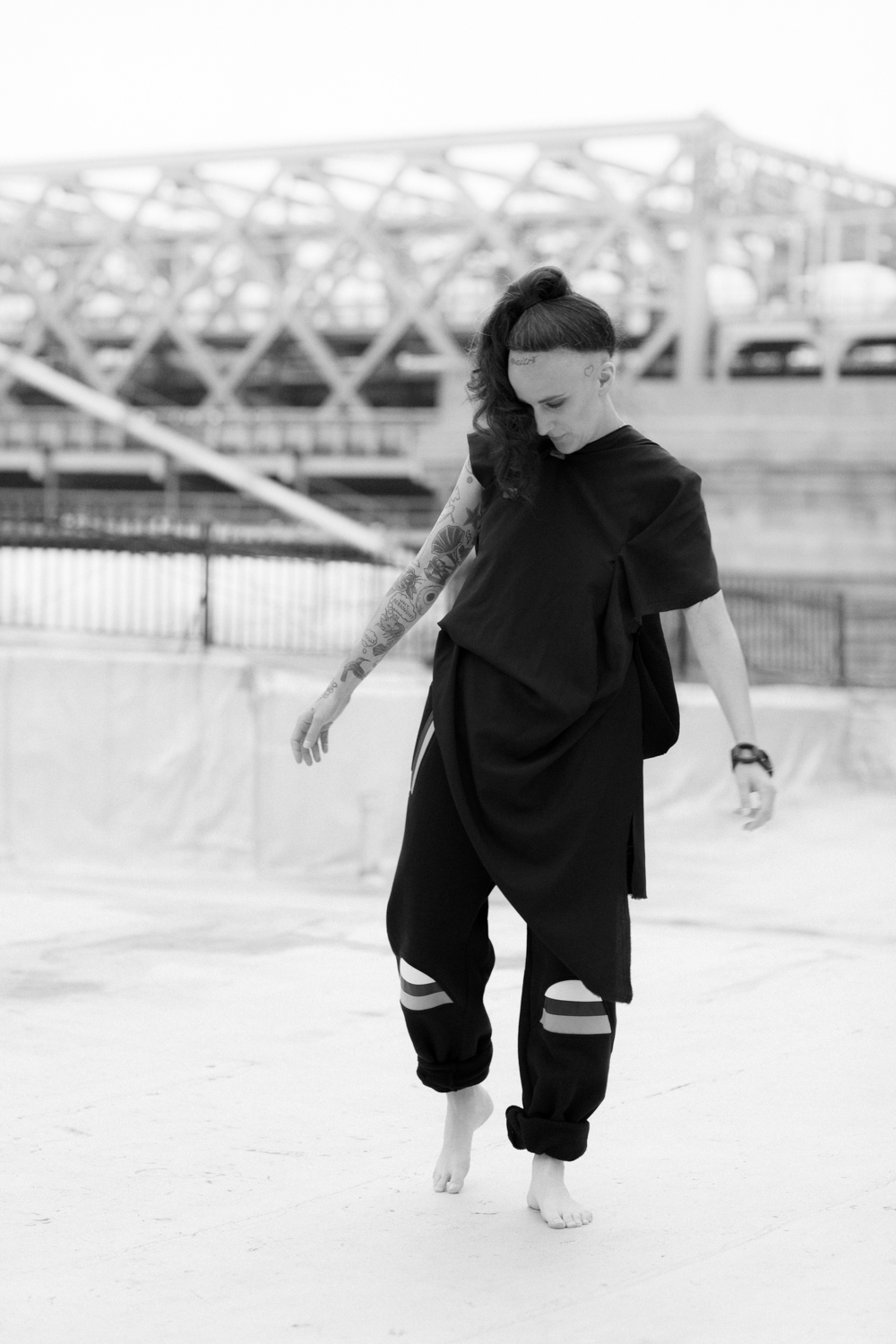
“To be a boss means listening as well as offering; to let yourself live and to let yourself work, in equal parts…”
Thankfully, there is very little influence of Primus evident in Flax’s own musical output. Her music is uniquely dark, but danceable, full of house beats and swelling symphonic strings. Her sound often strikes me as paradoxical: a warmly ecstatic core encased in a melancholy veneer. Flax favors the yin and yang symbol — she owns a number of clothing items and accessories featuring it, and this seems fitting, given the duality of her nature and art. She has managed to stay relevant, respected, and consistently booked for a decade and a half due to her undeniable talent and ability to remain balanced amidst excess. She is serious; she buckles down and works for long stretches every day, but is also capable of slipping seamlessly into an easy-going moment more than anyone else I have ever known.
People like to be where Flax is, because where she’s at is always more fun. Born in Detroit, Flax is the youngest of three children, all girls. When she was very young she was sure she’d grow up to become a nun, but now it is impossible to imagine her as anything other than a musician. There is a vocational element to her relationship with music, which enabled her to be comfortable in her own skin; music is woven throughout her entire identity. “I grew up playing the drums and took up playing guitar in high school, but I didn’t start DJing until 1997,” Flax recounts. “I learned on 2 Belt-drive turntables with a wheel pitch control. I mixed a Sade record with a Jungle record and everyone at the party went quiet. I was literally hooked from that second on.” Her musical landscape, from Dolly and Primus, to adventures with the underground dance scene, gave her relatable experiences with genre outsiders and music junkies.
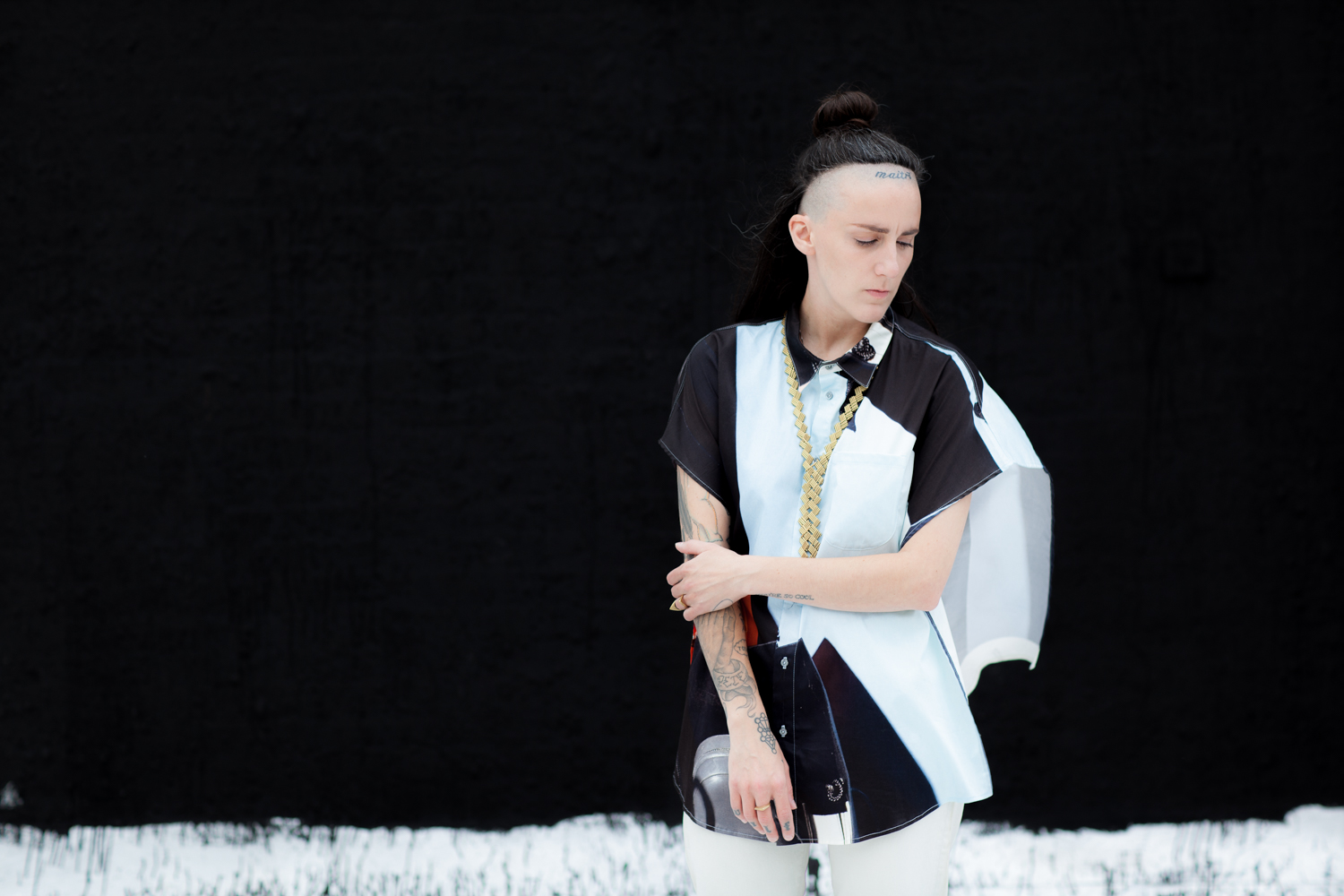
“As a teenager I had an unhealthy obsession with Hole and Courtney Love. It was a mixture of my teenage angst and coming-of-age sexuality. She gave me an outlet for my discomfort when realizing my sexuality in a very religious, Catholic family. I was allowed to scream and yell it out with every song. It was the first record I learned to play from start to finish on the guitar. “Later, Shirley Manson became a more positive role model for me. She still is. Her humor and genuine, grounded attitude has always moved me,” Flax says when I ask if her idols have changed after years navigating music as a queer woman. “Now that I’m older, I find that I can’t celebrate someone’s art without being able to celebrate their character.” Riding the wave from that first Sade mix, eighteen years old and freshly out of the closet, Flax stayed with friends in an assortment of dodgy living situations (above a strip club, in a closet) during a period she still describes as the time of her life. She was attending the Recording Institute of Detroit, where she found the program disappointing. “We didn’t touch any gear until the final exam,” she complained. “I learn from doing, not from just reading instructions and taking tests, so I didn’t really benefit much.” Thankfully there were plenty of opportunities to learn from doing. Adriel Thornton, a hugely influential pillar of the Detroit electronic music scene, gave her a residency at Motor Lounge — one of the top clubs in the country. She recalls this with gratitude, especially given how young and new she was to the DJ scene. Legendary DJ Carl Craig was also an early mentor, believing in her enough to book her for the first Detroit Electronic Music Festival in 2000. “I looked up to him and his wife at the time, Hannah. She is a wonderful artist and was always looking out for me as a teenager, on my own for the first time. We’re still in touch today.”

A few friends had moved from Detroit to Chicago and she decided to take one up on an offer to be taught music production if she joined them in the Windy City. “It was so great living there — both Detroit and Chicago have the deepest roots in dance music. To be surrounded by the people that created house and techno, all these like-minded individuals that had a deep care for the music — those things all put me on the right path.” A path that ultimately led to NYC, her home base since 2002. “My time in New York can’t be summed up easily,” Flax reflects. “This place has made me feel like I’ve lived many lives in one body; so much personal growth. I had the time of my life in my twenties, but I didn’t get a whole lot done musically.” This carefree period came to an end when, over the course of 2007, four close friends passed away unexpectedly. It was a time of tremendous grief and anxiety. “I had lost the plot somewhat, but when tragedies happen we get our shit together. From 2007 on, it’s been a non-stop journey of growth: some forced, some sought.” “I found myself again with my band, CREEP,” she realizes. The duo, a collaboration with longtime friend, Lauren Dillard, released their widely-praised debut album, “Echoes,” in 2013. The album featured collaborations with a diverse cast of music-world luminaries, including Sia, Holly Miranda, Romy Madley Croft, Lou Rhodes, Tricky, and Nina Sky. “CREEP was my first foray at just writing exactly what I was feeling with no intentions other than to create. I thought things had to sound a certain way, but really I just needed to find myself, my sound, my voice. Then came the time to perform and I had never really performed live before, so we were thrown out there to just figure it out in front of an audience. It was very humbling and I’m so thankful for it. I had to face and overcome these new and powerful fears that ultimately gave me the confidence I needed.”
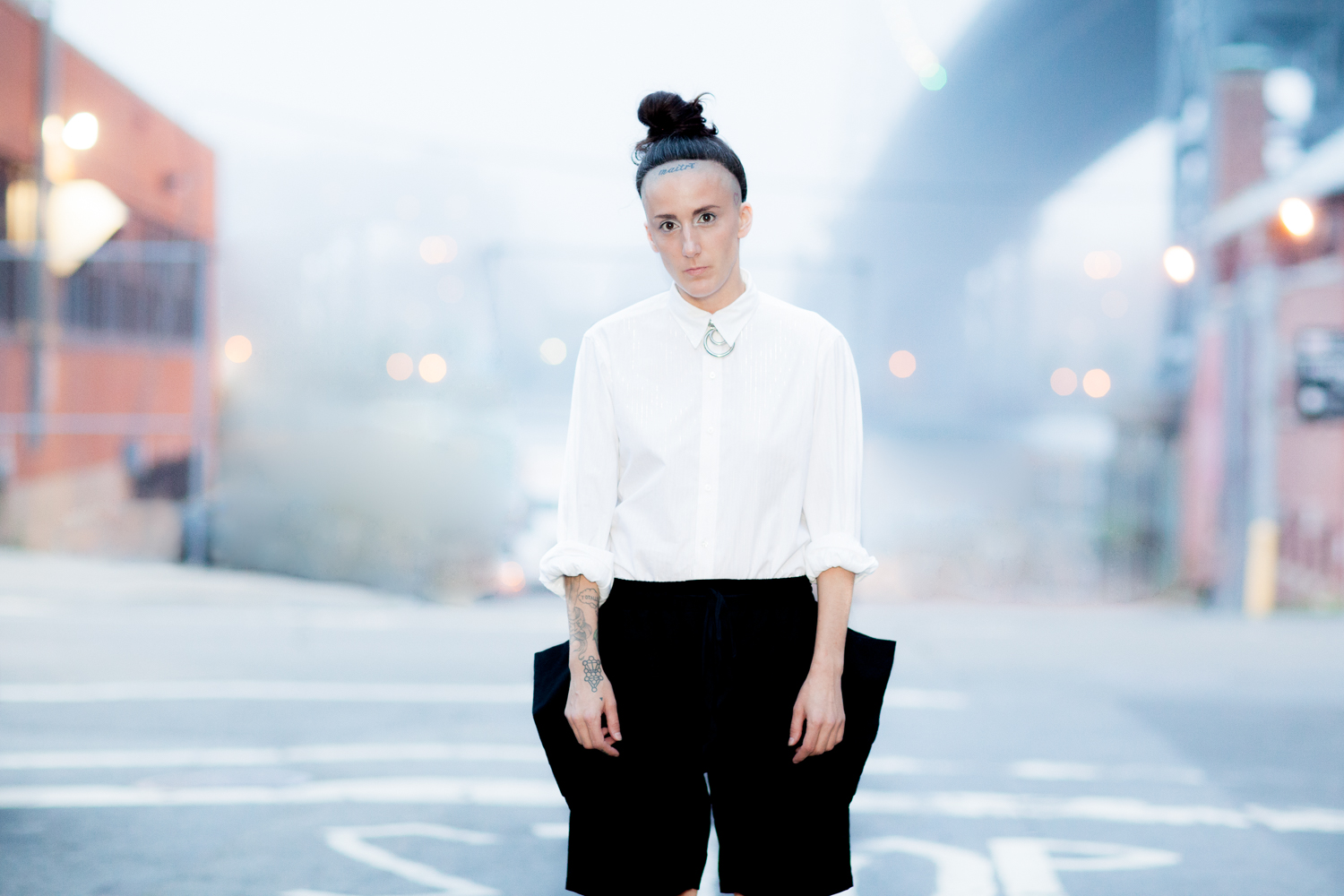
I ask Flax how her identity ties into her work; how she understands where it fits, where she fits. “Dating back to the rave days in the 90s I would always try to stay away from the all fe-male lineups,” she confesses. “My feminist belief says that we are equal to our male counterparts, so why separate us? But at the very same time, women booked at major festivals worldwide average around 3 to 10% of the entire lineup.” She continues, “I don’t necessarily think that we need to have more female-focused festivals to make ourselves better known, although I’m not saying that those events shouldn’t exist either. We simply need to be booked more, sought after more, heard more [as women]. I am surrounded by unbelievably talented female producers and DJ’s, so I am in my own bubble. There is no shortage of us to take up space on these lineups. We deserve to be booked.” Expecting the kind of pessimistic reflection that is common from a long-time musician, I question where Flax thinks dance music is headed and receive a uniquely optimistic answer. “I think the underground dance scene is as strong as it has ever been,” she shares. “What is happening in the EDM world hasn’t affected the validity of what is happening underground. Fads definitely come and go in all forms, but house runs so deep and has a very solid foundation. It’s a wonderful movement and innovation is happening.” Wondering what it means to her to be at the top of a game, the best, a boss, I ask how she understands the idea. “To be a boss means listening as well as offering; to let yourself live and to let yourself work, in equal parts. To be a boss is to be grounded, open and compassionate. We are strong and we are weak, but we always get back up because we are brave. Being a boss is to be a warrior. You’ll only become stronger.”
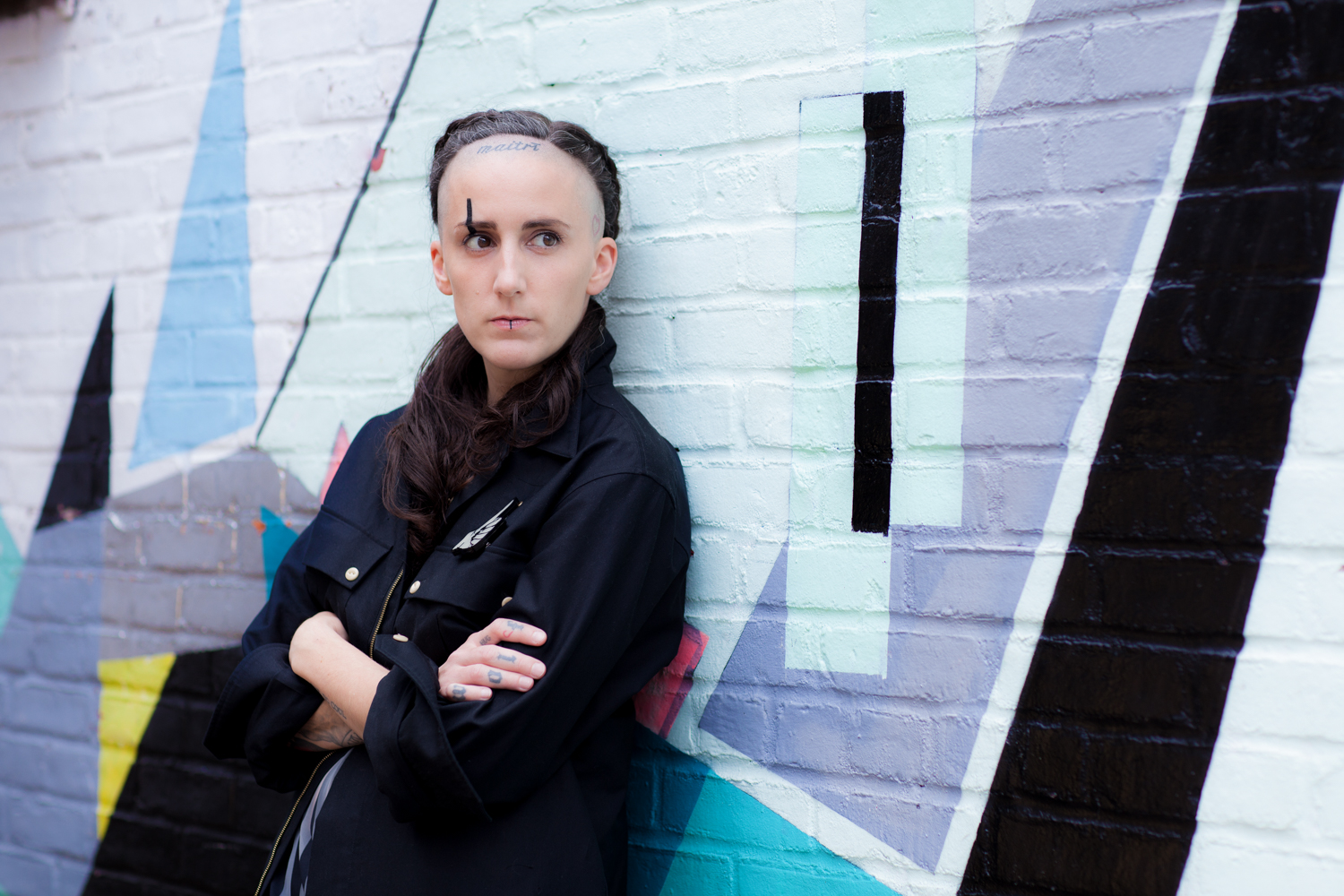
Are there pitfalls Flax has learned to avoid over her lengthy career? “I’ve seen quite a few people become successful, or even moderately successful, and lose themselves in it. It’s always frustrating to watch because this industry is so full of ups and downs and if you don’t stay grounded throughout the process you’ll have a more difficult time bouncing back from those downs. You have to stay grounded and not accept the highs as permanent — or the lows.” In an industry as fickle as music, keeping a level head is something Flax considers especially important if sustaining a career is your goal. Likewise, it’s important to understand the difference between fame and success. “You can be famous and still be broke. I could care less about fame; success to me is being able to take good care of yourself and care for your family and friends if needed. Oftentimes fame comes with success, but not always. Success means staying true to your sound…not succumbing to making music for anyone else aside from yourself.” Lauren Flax is currently focusing on her solo career, but one that is especially filled with collaboration; She’s been working with musicians Fritz Helder and Josh Caffe and will be releasing new tracks with Nina Sky. The near future includes a couple of EPs and a European tour. As of this writing she is halfway through a season in Berlin.
For more information, please visit Flax’s soundcloud:
[soundcloud url=”https://api.soundcloud.com/users/14295″ params=”auto_play=false&hide_related=false&show_comments=true&show_user=true&show_reposts=false&visual=true” width=”100%” height=”450″ iframe=”true” /]
This special collaboration with photographer Asher Torres was produced as an original editorial and interview for our third print issue.
Photography Asher Torres
Styling Gary Russell Freeman
Styling Assistance Yvo Battad-Cook
Hair/Makeup Katie Robinson
Photo Assistance Anabel Evans
Posture’s third print issue — The Boss Issue — is now available for purchase. This 168-page magazine features exclusive interviews with artists, theorists, activists, and nightlife icons. The conversations dive deep into ideas of leadership, success, and organizing in queer/trans/non-binary and WOC communities. This issue also represents a new design direction for Posture, one that reflects the mission and purpose of the publication.
Order your copy today through our online shop: shop.posturemag.com.

